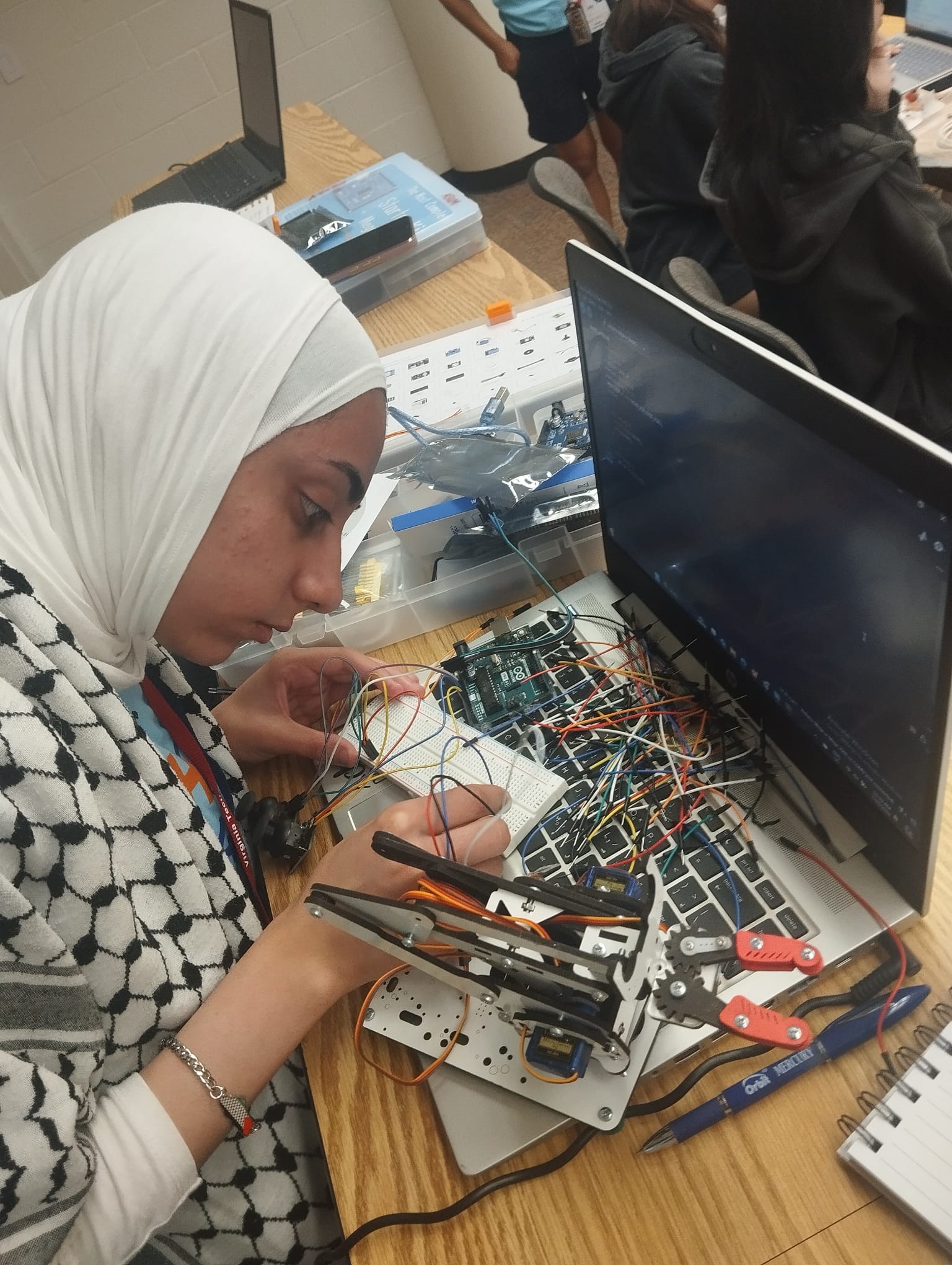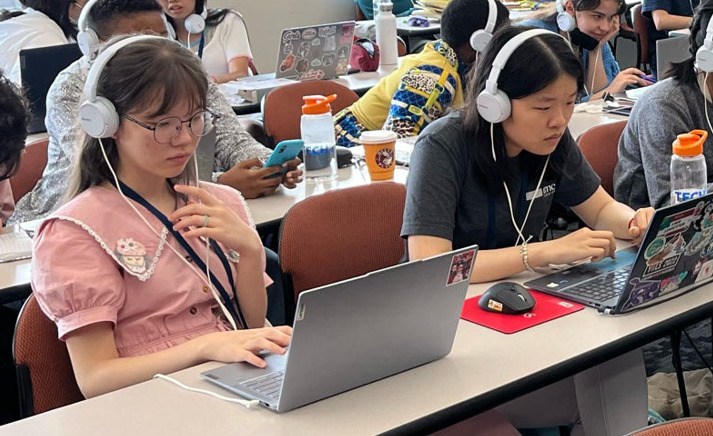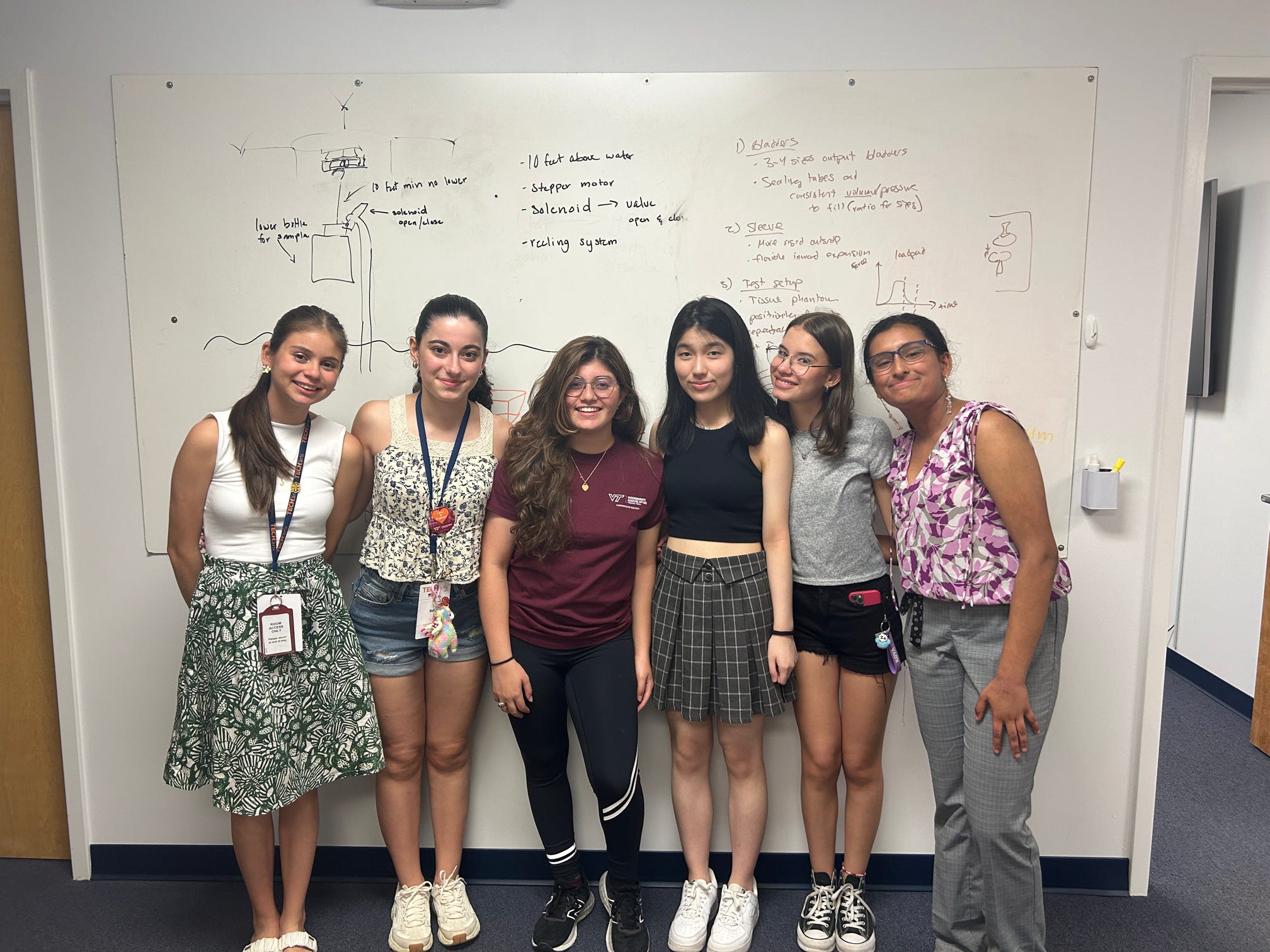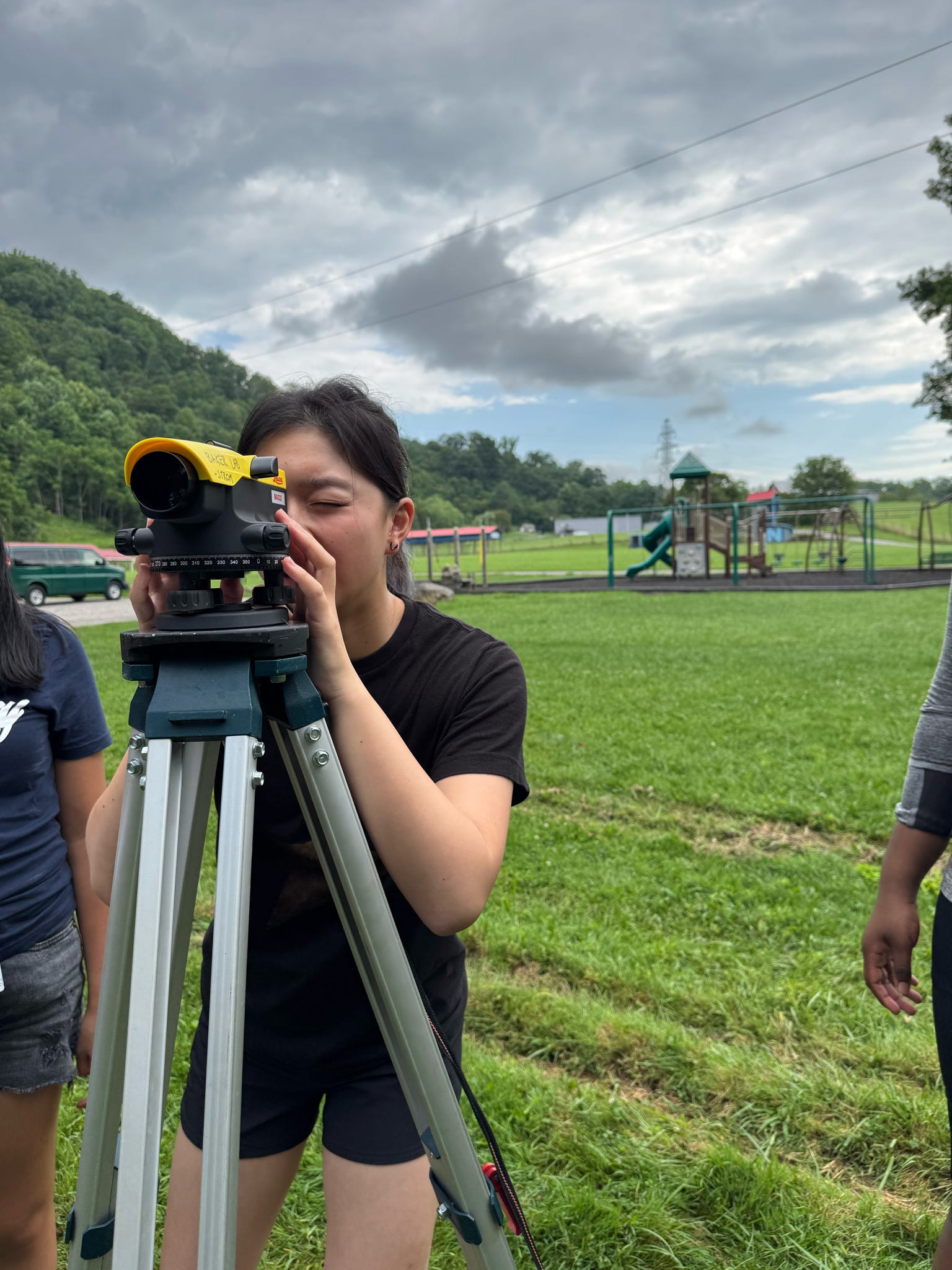Tech Camp and Training
The tech camp instructional partner for TechGirls is Virginia Tech.
While on Virginia Tech's campus, TechGirls receive 38 hours of instruction in a STEM foundational course. They visit labs to learn about groundbreaking research and have the opprotunity to meet and network with esteemed professors who are experts in a variety of STEM disciplines. The whole experience opens up great awareness of academic and career paths.
- “I’ve learned more than I ever expected! This course has given me hands-on experience in coding, wiring, breadboards, and building a shield bot—all while strengthening my teamwork skills. It was an amazing experience, and I wouldn’t change a thing.” 2025 Participant in Automating Systems Using Microprocessors.
- "EarSketch was especially useful because it made coding more fun and creative. The tutorials, music library, and real-time feedback helped me understand JavaScript better and turn my ideas into music." 2025 Participant in Learning Computational Thinking via Algorithmic Music Making.
Courses
Virginia Tech faculty across four departments offer challenging STEM courses over a ten-day period. This is an authentic university classroom experience which prepares students for higher education.
These faculty members are conducting cutting-edge research in their fields. Every year, they look forward to working with the next generation of STEM leaders and prepare practical workshops inspiring TechGirls to use STEM solutions for problem solving. TechGirls select one of four courses. Each course is led by the principle faculty instructor and three or more teaching assistants for plenty of personalized attention.
Take a look at Virginia Tech course samples from previous years!
Embracing Artificial Intelligence and Emerging Technologies
The TechGirls experience is forward oriented— reflecting the growing importance of artificial intelligence (AI) and data-driven innovation across all STEM fields. All of the TechGirls course offered at Virginia Tech integrate AI concepts into hands-on learning, from computational thinking and data analysis to creative applications like algorithmic music, machine learning and molecular modeling.
Through exposure to real-world research and emerging AI technologies generated by American innovators, TechGirls become thoughtful leaders in an increasingly AI-powered world.
Check out how the 2025 TechGirls are implementing AI into their Community Action Projects!
A 2025 TechGirl from Turkey: “My project SeenAI addresses the issue that many people with mental disabilities find in accessing educational materials that meet their needs. I will create an AI chatbot where people can enter the topic they want to learn about and receive personalized educational materials designed for their own neurological needs.”
A 2025 TechGirl from Kyrgyzstan: “My project, WeSave, addresses the lack of awareness about household water consumption in Bishkek, Kyrgyzstan. By creating a mobile app that digitizes water meter readings and provides AI-driven consumption analysis with personalized tips, we aim to help families reduce water waste. I will work with the European Union and the local government of innovation to integrate this solution into community programs and promote sustainable water use.”
A 2025 TechGirl from USA: “My project, Tutoring through Kinesthetic and AI Learning Software Integration, aims to help young students who struggle with or dislike math to develop a more positive attitude toward the subject. Partnering with a nonprofit organization, Mindset Math, and using my own programmed GUIs, I will tutor underclassmen at my school one to two times a month throughout the upcoming academic year.”





